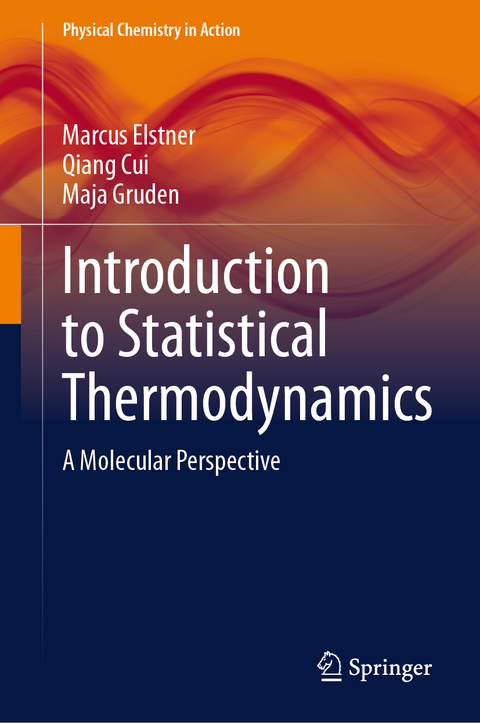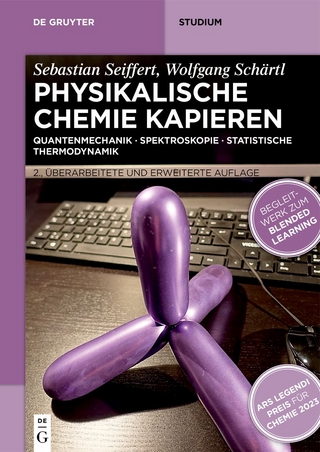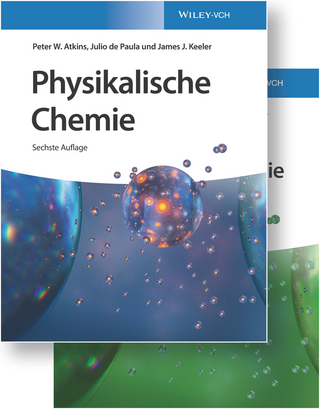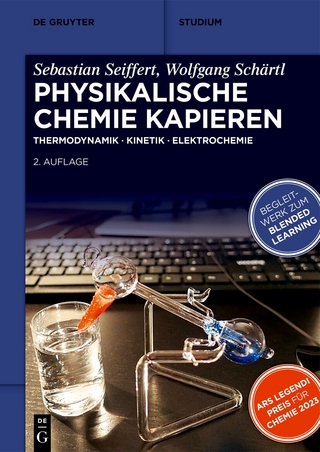
Introduction to Statistical Thermodynamics
Springer International Publishing (Verlag)
978-3-031-54993-9 (ISBN)
This textbook presents the fundamentals of statistical thermodynamics and electronic structure theory and focuses on introducing the central concepts of thermodynamics and their relation to microscopic theories in a conceptually clear and simple way. The emphasis is on the description of what is going on at the microscopic level, which allows readers to understand the various facets of entropy as the fundamental driving force of all material behaviors. An atomistic perspective is introduced from the beginning, highlighting the importance of molecular structure and microscopic degrees of freedom for understanding the thermodynamic properties of materials, such as heat capacity and magnetization. Because of their importance in various research fields, classical and quantum aspects are treated equally, allowing modern research topics to be addressed with molecular simulation and electronic structure theory. It is a valuable resource for undergraduate and graduate students in chemistry,physics, and materials science, and its modular structure makes it suitable for any reader.
Marcus Elstner has been a Professor at the Institute of Physical Chemistry at the Karlsruhe Institute of Technology (KIT) since 2009. After his doctorate in theoretical physics and a postdoctoral stay at Harvard University (1999-2000), he was Professor of Theoretical Chemistry at the Technical University of Braunschweig (2006-2009). In his research, he investigates the structure, dynamics and function of complex macromolecules using computer simulations based on the fundamental concepts and methods of Statistical Mechanics and Electronic Structure theory.
Qiang Cui received his Ph. D. at Emory University with Professor Keiji Morokuma in 1997. He was a postdoctoral fellow in the Department of Chemistry, Harvard University with Professor Martin Karplus, and started his independent career at the University of Wisconsin-Madison (2001-2017). Since 2018, he has been a professor of Chemistry at Boston University and holds courtesy appointments in Physics and Biomedical Engineering. His main research field is theoretical/computational chemistry and biophysics, especially the analysis of bioenergy transduction, membrane biophysics, protein dynamics and the nano/bio interface.
Maja Gruden is a Full Professor of General and Inorganic Chemistry at the University of Belgrade - Faculty of Chemistry. She received her Ph.D. from the University of Belgrade in 2007. Her interest in theoretical inorganic chemistry led her to the University of Fribourg, Switzerland in 2009, where she completed her postdoctoral studies with Prof. Claude Daul. Prof. Gruden's research interests in recent years have focused on the application of Density Functional Theory (DFT) to transition metal chemistry and the understanding of the electronic structure of transition metal complexes with emphasis on the effect of spin states and vibronic coupling on reactivity, selectivity, magnetic properties, chemical bonding and spectroscopy.
Part I Microscopic and Macroscopic Theories.- Why Statistical Thermodynamics?.- Energies of Molecules.- Dynamics of molecules.- The laws of thermodynamics.- Principle of maximum entropy.- Part II Fundamentals of Classical Statistical Thermodynamics.- The microscopic entropy.- The Boltzmann distribution.- The canonical distribution.- The canonical ensemble.- Non-interacting and interacting systems.- Part III Application of Classical Statistical Thermodynamics.- State sum (partition function) for non-interacting systems.- Application to ideal gases of polyatomic molecules.- Chemical equilibria and kinetics.- Application to solid bodies.- Application to 2-level systems: spin systems.- Spatial distributions.- Thermodynamics of Real Gases, Liquids and Polymers.- Part IV Quantum statistics and the electronic structure of molecules.- Quantum Statistics.- Electron densities and electron correlations.- Wave function based methods.- Density Functional Theory (DFT).- Non-covalent interactions.
| Erscheinungsdatum | 11.05.2024 |
|---|---|
| Reihe/Serie | Physical Chemistry in Action |
| Zusatzinfo | XXVI, 554 p. 126 illus. |
| Verlagsort | Cham |
| Sprache | englisch |
| Maße | 155 x 235 mm |
| Themenwelt | Naturwissenschaften ► Chemie ► Physikalische Chemie |
| Naturwissenschaften ► Physik / Astronomie ► Quantenphysik | |
| Naturwissenschaften ► Physik / Astronomie ► Thermodynamik | |
| Schlagworte | Canocial Ensemble • classical statistical mechanics • Entropy • quantum statistical mechanics • statistical mechanics textbook • thermodynamics textbook |
| ISBN-10 | 3-031-54993-7 / 3031549937 |
| ISBN-13 | 978-3-031-54993-9 / 9783031549939 |
| Zustand | Neuware |
| Informationen gemäß Produktsicherheitsverordnung (GPSR) | |
| Haben Sie eine Frage zum Produkt? |
aus dem Bereich


